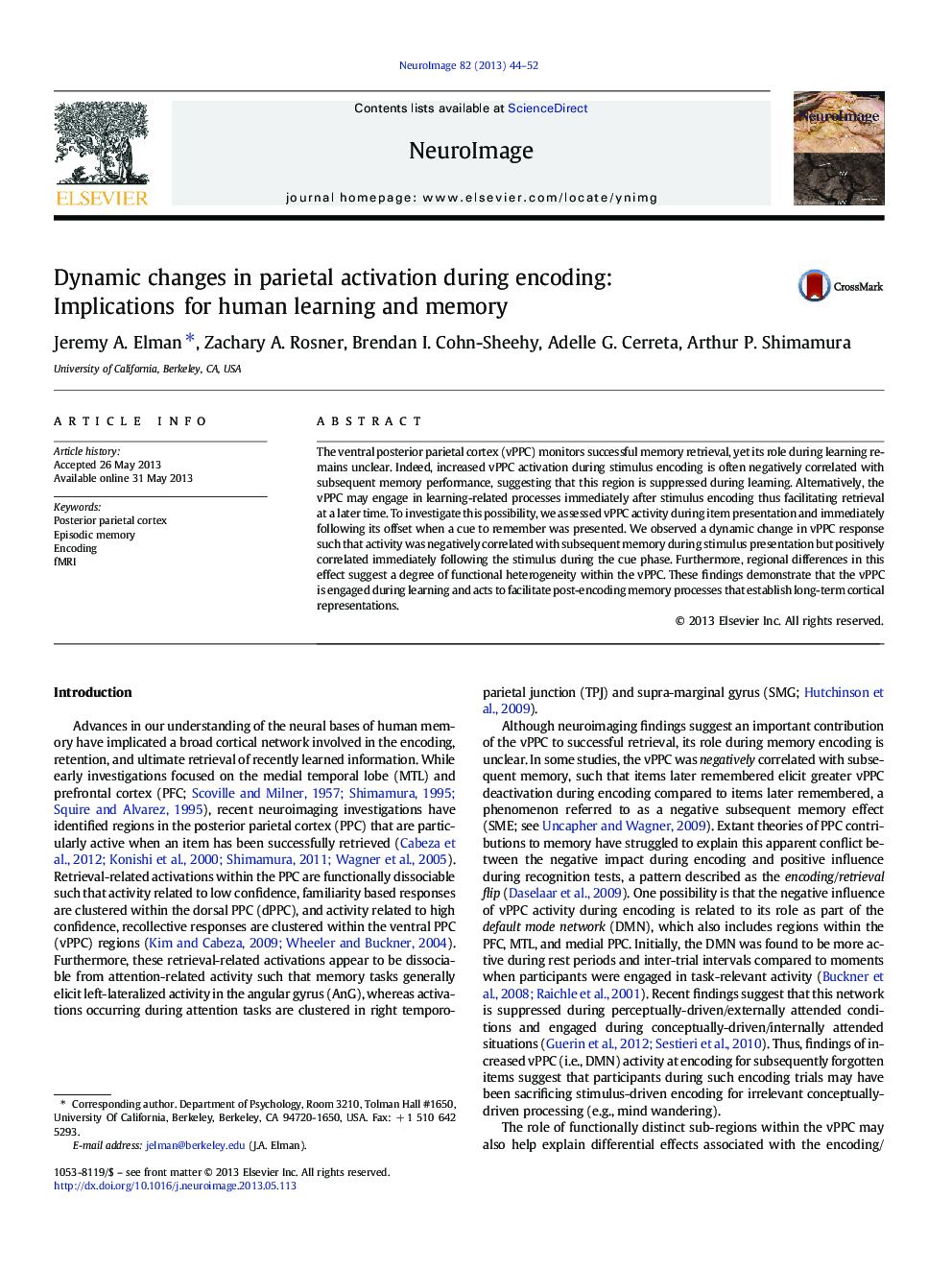| Article ID | Journal | Published Year | Pages | File Type |
|---|---|---|---|---|
| 6028888 | NeuroImage | 2013 | 9 Pages |
â¢Ventral parietal activity is assessed during stimulus encoding and subsequent delay.â¢Activity was negatively correlated with subsequent memory during the stimulus phase.â¢During the following cue, activity was positively correlated with memory formation.â¢Ventral parietal cortex may facilitate beneficial post-encoding processes.
The ventral posterior parietal cortex (vPPC) monitors successful memory retrieval, yet its role during learning remains unclear. Indeed, increased vPPC activation during stimulus encoding is often negatively correlated with subsequent memory performance, suggesting that this region is suppressed during learning. Alternatively, the vPPC may engage in learning-related processes immediately after stimulus encoding thus facilitating retrieval at a later time. To investigate this possibility, we assessed vPPC activity during item presentation and immediately following its offset when a cue to remember was presented. We observed a dynamic change in vPPC response such that activity was negatively correlated with subsequent memory during stimulus presentation but positively correlated immediately following the stimulus during the cue phase. Furthermore, regional differences in this effect suggest a degree of functional heterogeneity within the vPPC. These findings demonstrate that the vPPC is engaged during learning and acts to facilitate post-encoding memory processes that establish long-term cortical representations.
